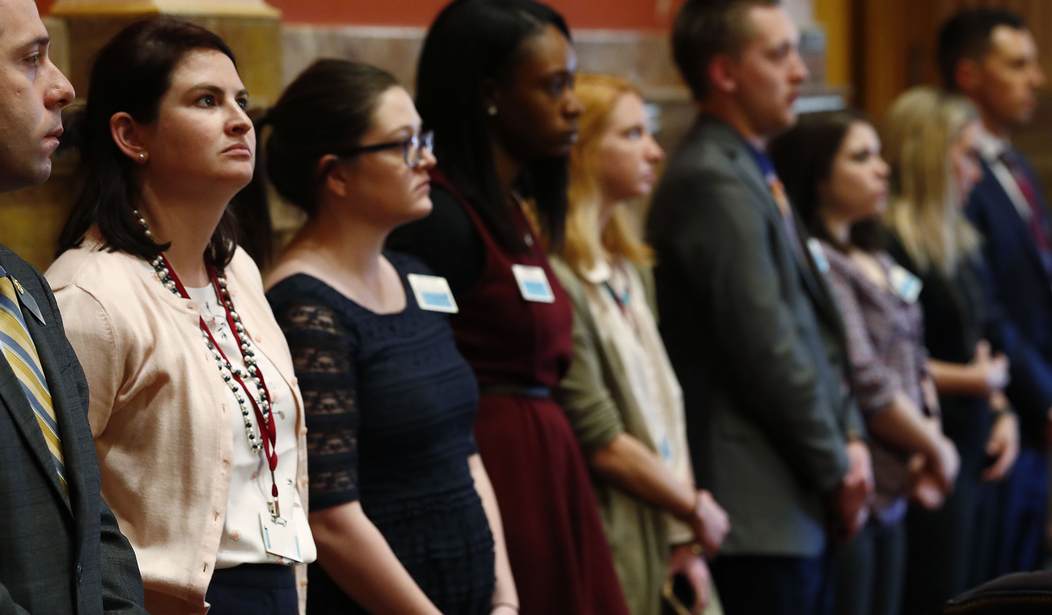The dream of every bright-eyed youngster arriving in Washington, D.C., fresh out of college or grad school, is to get a job on Capitol Hill working in a congressional office.
The process is insanely competitive. Securing a spot in a congressional office is a big step toward bigger and better things and there are usually thousands of applicants for one job. Landing a job on the Hill is akin to grabbing the brass ring or winning the lottery. But there are a few drawbacks.
The hours are brutal, the pay is laughable, and many politicians are impossible to work for. The current vice president of the United States was known to reduce staffers to tears with her personal insults and criticisms.
Many staffers are thinking that perhaps Hill workers should organize themselves into a union. Or maybe two. There’s a caste system on the Hill, with “senior staffers” getting all the perks and pay while the rest of the congressional office workers are seen in a lesser light. Shouldn’t there be one union for senior staff and one for the rest of the workers?
There are other problems as well.
The actual organizing is far more complicated than passing a measure on the House floor, according to interviews with multiple senior House aides. It’s not even clear if staff could join an existing guild or if the process would force them into the unusual step of creating one from scratch. Many unions, including the American Federation of Government Employees the largest federal employee union, have backed the effort, but none have publicly stepped up to lead the Hill push.
And some House staffers are acknowledging their efforts could take years, prompting them to look at more feasible short-term solutions. Some offices are floating options such as an across-the-board “pay floor” that would require all offices to pay staff at least a living wage in D.C. Others say they want to push more offices to compensate employees for overtime work — an uneven practice across the Capitol.
Union organizers are looking at 535 separate offices or workplaces. Do they organize office by office? Or are all congressional aides equal?
Job titles and descriptions vary from office to office, making the creation of a wage scale nearly impossible.
Clearly, the problems of getting a union started on the Hill are immense. But the staffers apparently have the president on their side.
“There’s some talk on Capitol Hill about congressional staffers unionizing,” Psaki was asked by a reporter. “Does the president support that?”
He does,” Psaki responded. “He supports the right of any individual to seek to join a union, to collective bargain, and of course Capitol Hill staffers are certainly individuals who are pursuing that.”
When asked if White House staff have been in touch with the congressional staffers who are pushing for a union, Psaki directed the question to congressional leadership.
One big reason this idea will be extremely difficult to get off the ground is that employee turnover in congressional offices is historically high—50 percent a year for some offices. Any industry that suffers that high a rate of turnover is very hard to unionize.
But the drive to unionize is apparently serious and could alter the culture of Hill employment going forward.










Join the conversation as a VIP Member